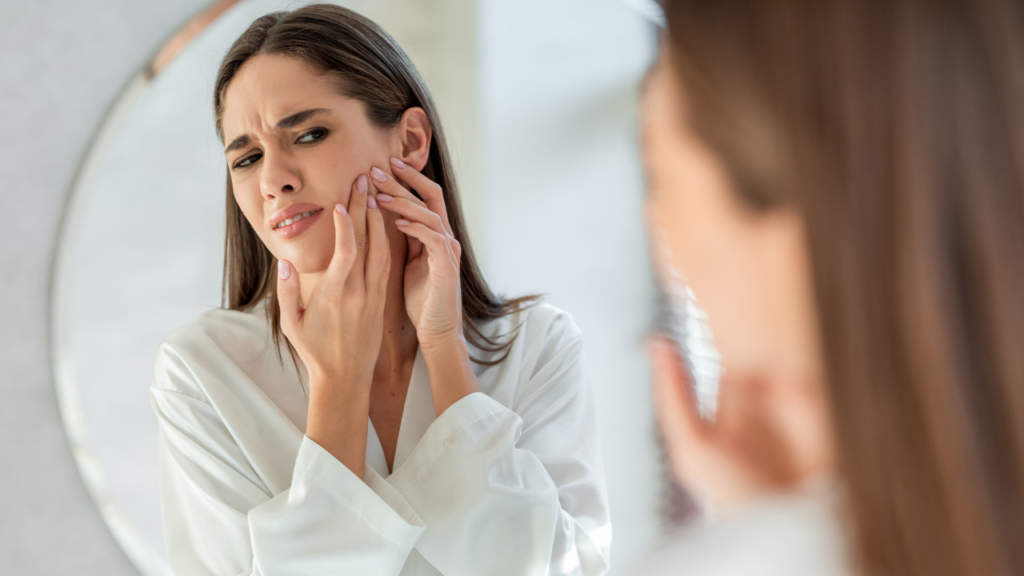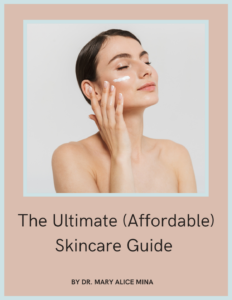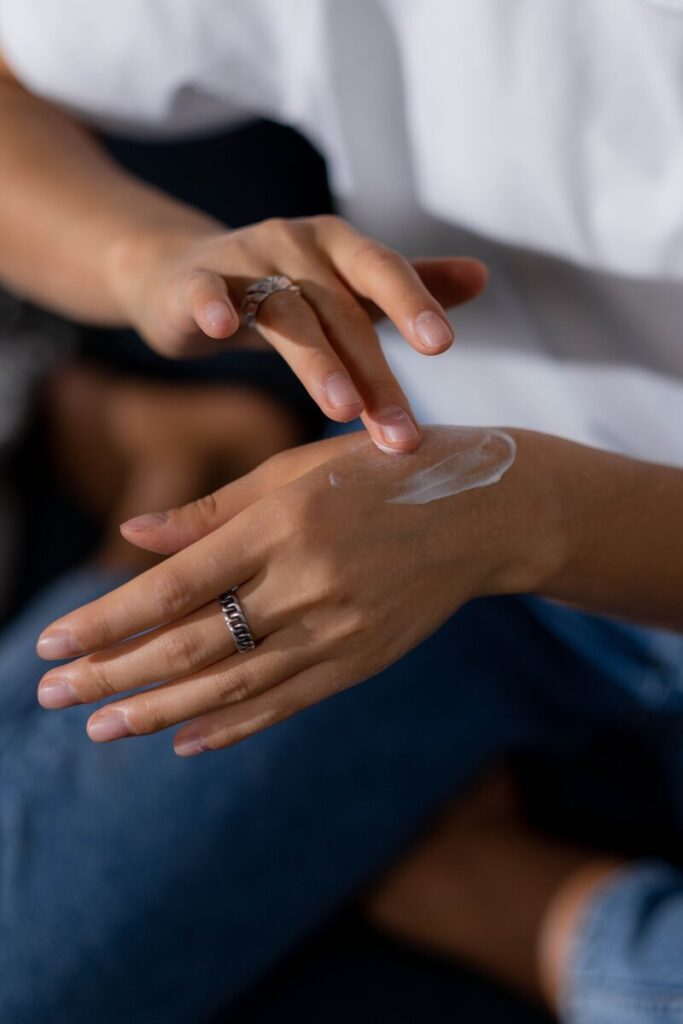Have you ever found yourself dealing with hair loss, feeling constantly tired, always feeling cold, or struggling with weight gain that just won’t budge? I know these symptoms can be super frustrating and sometimes even a little scary. They might seem vague and not really connected to anything specific, and when you go for routine blood work, everything might come back looking normal. It’s easy to start thinking it’s all in your head, but trust me, these symptoms are real, and it’s important to get to the bottom of them!
That’s where your thyroid comes in! So what is the thyroid gland?
This little gland, located right at the base of your neck, is a powerhouse when it comes to regulating many of our body’s functions. It produces hormones that control everything from our metabolism to how our body uses energy.
When it comes to skin health, your thyroid gland plays a major role. For example, if your thyroid levels are low, you might notice your skin getting dry and cracked, no matter how much you moisturize. On the flip side, if your thyroid levels are high, you might see a doughy texture, especially around your eyes and lower legs. Hair loss can happen with both high and low thyroid levels! So, whenever I see these skin issues, I always think about the thyroid.
When the thyroid isn’t producing enough hormones (hypothyroidism) or is producing too much (hyperthyroidism), our bodies definitely take notice and start acting out. Both conditions can significantly affect our skin, hair, and nails in various ways:
- Dry Skin: When your thyroid isn’t producing enough hormones (hypothyroidism), your metabolism slows down. This means less oil production, leading to dry, flaky skin. No matter how much you moisturize, it can still feel rough and dry. It’s like your skin loses its natural ability to stay hydrated.
- Pale or Yellowish Skin: In more severe cases of hypothyroidism, your skin might look pale or even have a yellowish tint. This happens because of decreased blood flow and poor circulation. It’s a bit like your skin isn’t getting enough of the nutrients it needs to look healthy. Also fun fact, you need T3 from your thyroid to convert carotene to retinol and when carotene builds up, you can get a yellowish hue.
- Hair Loss: Both too little and too much thyroid hormone can cause hair loss. With hypothyroidism, your hair can become thin, brittle, and fall out in patches. Hyperthyroidism, on the other hand, might make your hair fine and brittle, causing it to break easily. It’s so frustrating because it feels like you’re losing hair from all angles!
- Nail Changes: Your thyroid health shows up in your nails too! Hypothyroidism can make your nails brittle, ridged, and prone to breaking. They can get weak and split easily, making it hard to keep them looking nice. Hyperthyroidism might make them soft and thin, which also isn’t great for nail health.
- Swelling (edema): Sometimes, hypothyroidism can lead to a condition called myxedema which causes swelling, particularly in the face, tongue and hands. This is due to the accumulation of glycosaminoglycans in the skin and other tissues.
- Itching and Rashes: The dry skin from hypothyroidism can be super itchy, and scratching it can lead to rashes. It’s a constant battle to keep your skin comfortable, as the dryness just keeps coming back.
- Excessive Sweating: If your thyroid is overactive (hyperthyroidism), you might sweat a lot more. This can make your skin feel clammy and can increase the risk of fungal or bacterial infections. It’s like your body’s thermostat is stuck on high, making you sweat even when you’re not hot.
- Graves’ Disease and Skin Changes: Graves’ disease, a type of hyperthyroidism, can cause a specific skin condition called pretibial myxedema. This leads to thick, reddish, and lumpy skin on your shins. It’s due to sugars called glycosaminoglycans getting deposited in your skin making it feel firm and thick. It’s a visible and uncomfortable symptom that’s hard to ignore.
- Facial Puffiness: With hypothyroidism, you might notice puffiness around your eyes and face. This can make you look tired and feel sluggish, even if you’ve had plenty of rest.
- Weight Changes: While not directly a skin, hair, or nail issue, weight changes from thyroid problems can affect your overall appearance and how you feel about yourself. Hypothyroidism often leads to weight gain, while hyperthyroidism can cause weight loss.
If you’re dealing with skin problems like dryness, hair loss, or brittle nails, you should definitely see a dermatologist or a doctor who knows about thyroid issues. Sometimes, a simple blood test can reveal if your thyroid is out of whack. Trust me, fixing those thyroid levels can really help you feel and look so much better! Don’t wait—your body will thank you!
Want to know how to keep your thyroid healthy? Tune in to this week’s podcast episode where Dr. Gibbs and I share tips on what you can do to support your thyroid. We cover everything from lifestyle changes, like diet and exercise, to treatments that can help if your thyroid isn’t working right!
Find Dr. Dana Gibbs here:
https://www.instagram.com/danagibbsmd/
A new podcast episode drops every Monday!
For more great skin care tips, subscribe to The Skin Real Podcast.










